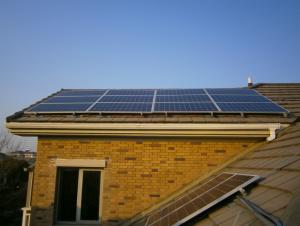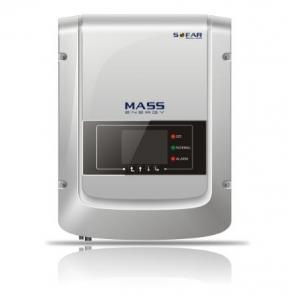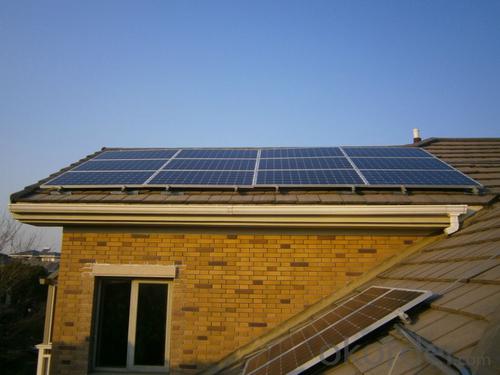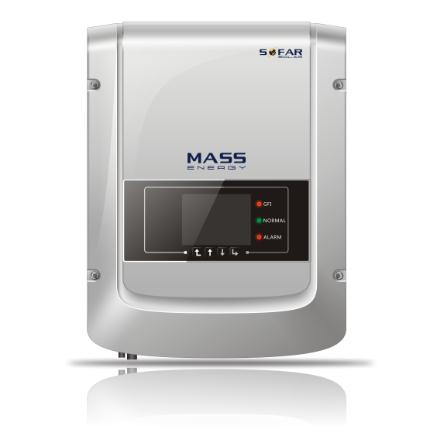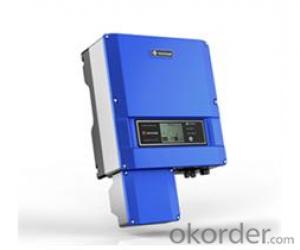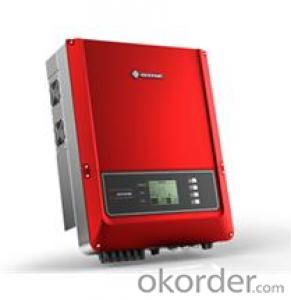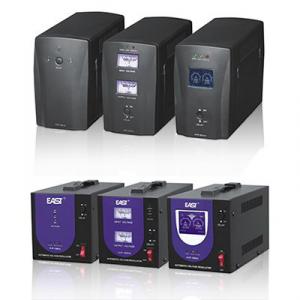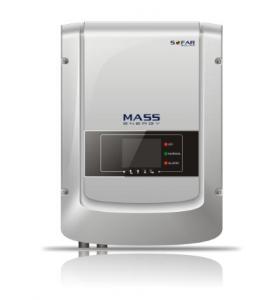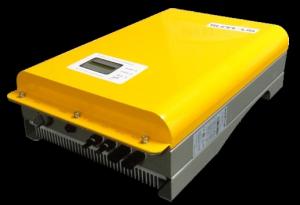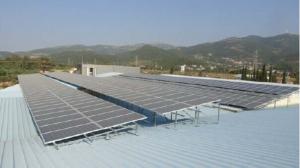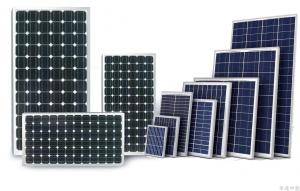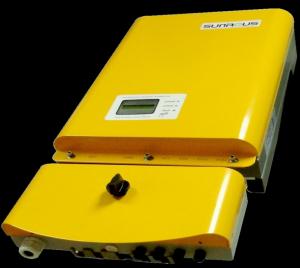400 Watt Grid-Tied Solar PV Inverter 1600TL Good Quality
- Loading Port:
- Shekou
- Payment Terms:
- TT or LC
- Min Order Qty:
- 10 unit
- Supply Capability:
- 99999 unit/month
OKorder Service Pledge
OKorder Financial Service
You Might Also Like
Grid-tied solar PV inverter 1600TL Good Quality
High-yield of PV inverter
•Max 97.1%efficiency
•Real timeprecise MPPT algorithm for max harvest
•Wide inputvoltage operation range from 90V to 500V
All in one. Flexible and economicalsystem solution of PV inverter
•Free siteselection due to IP65
•Easy installationand maintenance due to “Plug & Play” connection
•Interfaceselection-Wi-Fi/ RS485 / Dry Relay for more flexible
•configurationandsystem monitoring
•4” LCDdisplay
•
Low maintenance cost
•Rust-freealuminumcovers
•Flexiblemonitoring solution
•Multifunctionrelay can be configured to show various inverter information
Intelligent gridmanagement
•Reactivepowercapability
•Self powerreduce when over frequency
•Remoteactive/reactivepower limit control
PV inverter datasheet
Technical Data | SOFAR 1100TL | SOFAR 1600TL | SOFAR 2200TL | SOFAR 2700TL | SOFAR 3000TL | |
Input (DC) | ||||||
Max. Input Power | 1100W | 1600W | 2200W | 2700W | 3000W | |
No. of MPPT / String per MPPT | 1/1 | |||||
Max. Input voltage | 450V | 450V | 500V | 500V | 500V | |
Max. Input Voltage | 80V | |||||
Rated input voltage | 360V | |||||
Operating input voltage range | 90V-400V | 100V-480V | ||||
MPPT voltage range | 110V-380V | 165V-380V | 170-450V | 210-450V | 230V-450V | |
Max. Input current per MPPT | 10A | 13A | ||||
Input short circuit current per MPPT | 12A | 15A | ||||
Output(AC) | ||||||
Rated power(@230V,50Hz) | 1000VA | 1500VA | 2000VA | 2500VA | 2800VA | |
Max. AC power | 1000VA | 1500VA | 2000VA | 2500VA | 2800VA | |
Max. AC Output Current | 4.5A | 7A | 9.5A | 11.5A | 13A | |
Rated Grid Voltage | 230V | |||||
Nominal Grid Voltage Range | 180V-270V(According to local standard) | |||||
Rated Frequency | 50Hz / 60Hz | |||||
Grid frequency Range | 44~55 / 54~66Hz(According to local standard) | |||||
THDi | <3% | |||||
Power factor Adjustable Range | 0.8 over excited … 0.8 under excited | |||||
Grid connection | Single phase | |||||
Efficiency | ||||||
Max. efficiency | 97% | 97.1% | ||||
Weighted eff.(EU/CEC) | 96% | 96.2% | 96.3% | |||
MPPT efficiency | >99.5% | |||||
Standard | ||||||
EMC | EN 61000-6-1, EN 61000-6-2, EN 61000-6-3, EN 61000-6-4 | |||||
RSSR | IEC 62109-1, IEC 62109-2 | |||||
Grid Standards | AS4777, VDE4105, C10-C11, G83/G59 (more available on request) | |||||
Protection | ||||||
Anti-Islanding Protection | Yes | |||||
DC reverse polarity protection | Yes | |||||
Over Temp Protection | Yes | |||||
Leakage Current Protection | Yes | |||||
Over Voltage Protection | Yes | |||||
Over Current Protection | Yes | |||||
Earth Fault Protection | Yes | |||||
Communication | ||||||
Standard Communication Mode | Wifi+RS485 | |||||
Operation Data Storage | 25 years | |||||
Relay | Yes | |||||
I/O | Yes | |||||
General data | ||||||
DC Switch | optional | |||||
Ambient temperature range | -25℃ ~ +60℃ | |||||
Topology | Transformerless | |||||
Cooling | Nature | |||||
Allowable relative humidity range | 0 ~ 95% no condensing | |||||
Max. Operating Altitude | 2000m | |||||
Noise | <35dB @1m | |||||
Degree of Protection (per IEC 60529) | IP65 | |||||
Dimension | 400*310*130mm | |||||
Weight | 11kg | 12kg | ||||
Self-consumption at night | 0 | |||||
Display | Graphic display | |||||
Warranty | 5 years | |||||
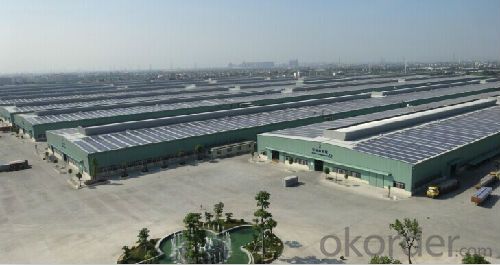
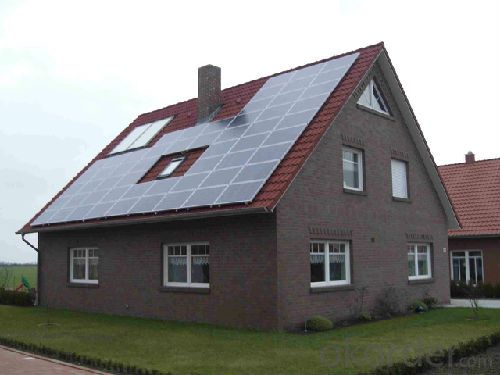
FAQ
1. Have any design tool and how to use it?
Shine Design is the system design software just for inverters, It can conduct installers to figure out panel numbers for a system, panel numbers for each string, and which inverter model is suitable for the system. Moreover, it can print a design report after input all necessary parameters, can calculate DC/AC wire wastage, annual generation, etc.
2. Does the inverter have monitoring solutions for residential system?
For small rating system, we have wired two monitoring solution (ShineNet via RS232 or RS485). (a) Local wireless monitoring solution (ShineVision via RF module communication) (b) Global wireless monitoring solution (WIFI module via WIFI network)
3. Do you have free solution for monitoring?
ShineNet is an inverter monitoring software run in Windows XP, Windows Vista, Windows 7 operating system. It can monitor inverter via RS232 (or RS232 convert to USB cable) and RS485 wire connection. Customers can purchase the cable locally to get the inverter monitored, it is simple.
- Q: What is the role of a solar inverter in preventing system failures?
- The role of a solar inverter in preventing system failures is to convert the direct current (DC) electricity generated by solar panels into alternating current (AC) electricity that can be used to power homes and businesses. In addition to this conversion, solar inverters also play a crucial role in ensuring the stability and efficiency of the entire solar power system. They monitor and regulate the voltage and frequency of the electricity being generated, protecting the system from overvoltage, undervoltage, and other electrical abnormalities that can potentially lead to system failures. By constantly monitoring and adjusting the electrical output, solar inverters help maintain the health and reliability of the solar power system, ultimately preventing potential failures and maximizing the overall performance.
- Q: How does a solar inverter handle islanding detection?
- A solar inverter handles islanding detection by constantly monitoring the grid voltage and frequency. If the solar inverter detects a deviation from the normal grid parameters, it will automatically disconnect from the grid to prevent islanding.
- Q: What is the role of a solar inverter in net metering?
- The role of a solar inverter in net metering is to convert the direct current (DC) electricity generated by solar panels into alternating current (AC) electricity that can be used to power household appliances or fed back into the electric grid. It ensures that the electricity produced by the solar panels is synchronized with the grid's voltage and frequency. Additionally, the solar inverter allows for the measurement and tracking of the energy generated and consumed, enabling accurate net metering calculations and billing.
- Q: What is the impact of a solar inverter on the overall system cost?
- A solar inverter can have a significant impact on the overall system cost. It is an essential component that converts the direct current (DC) produced by solar panels into alternating current (AC) that can be used by electrical appliances and fed into the grid. The quality and efficiency of the inverter play a crucial role in optimizing the energy production and overall performance of the solar system. High-quality inverters tend to be more expensive but can enhance the system's reliability, lifespan, and energy yield. Therefore, while a solar inverter does add to the system cost, investing in a reliable and efficient one can result in long-term benefits and returns by maximizing the system's overall performance.
- Q: What is the role of a solar inverter in a grid-tied system?
- The role of a solar inverter in a grid-tied system is to convert the direct current (DC) electricity produced by the solar panels into alternating current (AC) electricity that can be used by the electrical grid or consumed by the appliances and devices in a home or business. It also ensures that the solar energy generated is synchronized with the grid's voltage and frequency to enable efficient and safe transfer of power. Additionally, the solar inverter monitors and controls the flow of electricity between the solar panels, the grid, and any energy storage systems that may be connected to the system.
- Q: How does a solar inverter interact with a battery storage system?
- A solar inverter interacts with a battery storage system by converting the direct current (DC) generated by the solar panels into alternating current (AC) that can be used to power household appliances or be fed back into the grid. It also manages the charging and discharging of the battery, ensuring efficient energy storage and utilization.
- Q: What are the key factors affecting the efficiency of a solar inverter?
- The key factors affecting the efficiency of a solar inverter include the quality and design of the inverter itself, the type and condition of the solar panels being used, the temperature and shading conditions at the installation site, and the overall system design and configuration. Additionally, factors such as the efficiency of the DC to AC conversion process, the presence of any power losses or inefficiencies in the wiring and connections, and the overall system maintenance and monitoring practices can also impact the efficiency of a solar inverter.
- Q: Can a solar inverter be used for both grid-tied and off-grid systems?
- Yes, a solar inverter can be used for both grid-tied and off-grid systems. However, it is important to note that there are different types of solar inverters designed specifically for each system. Grid-tied inverters are designed to convert DC power generated by solar panels into AC power and feed it into the grid, while off-grid inverters are designed to convert DC power into AC power for use in standalone systems not connected to the grid.
- Q: Can a solar inverter be used with thin-film solar panels?
- Yes, a solar inverter can be used with thin-film solar panels. Thin-film solar panels have a different structure and composition compared to traditional crystalline silicon panels, but they still generate DC electricity that needs to be converted into AC for use in homes or businesses. A solar inverter is responsible for this conversion process, regardless of the type of solar panels used.
- Q: What is the role of a solar inverter in a solar-powered desalination system?
- The role of a solar inverter in a solar-powered desalination system is to convert the direct current (DC) electricity generated by the solar panels into alternating current (AC) electricity that can be used to power the desalination equipment. The inverter ensures efficient and safe power conversion, allowing the system to effectively utilize the energy generated by the solar panels for the desalination process.
Send your message to us
400 Watt Grid-Tied Solar PV Inverter 1600TL Good Quality
- Loading Port:
- Shekou
- Payment Terms:
- TT or LC
- Min Order Qty:
- 10 unit
- Supply Capability:
- 99999 unit/month
OKorder Service Pledge
OKorder Financial Service
Similar products
Hot products
Hot Searches
Related keywords
